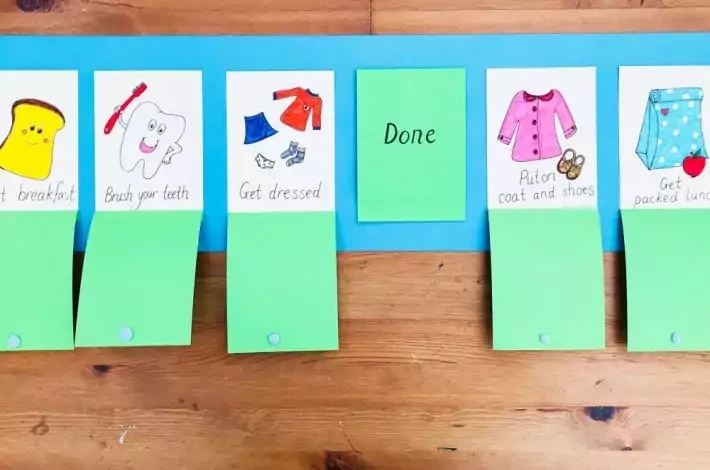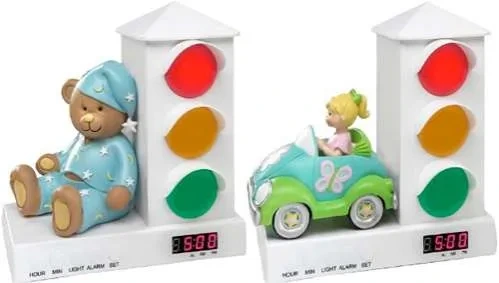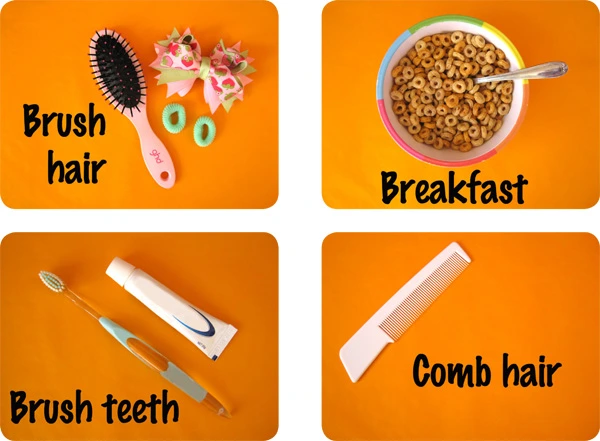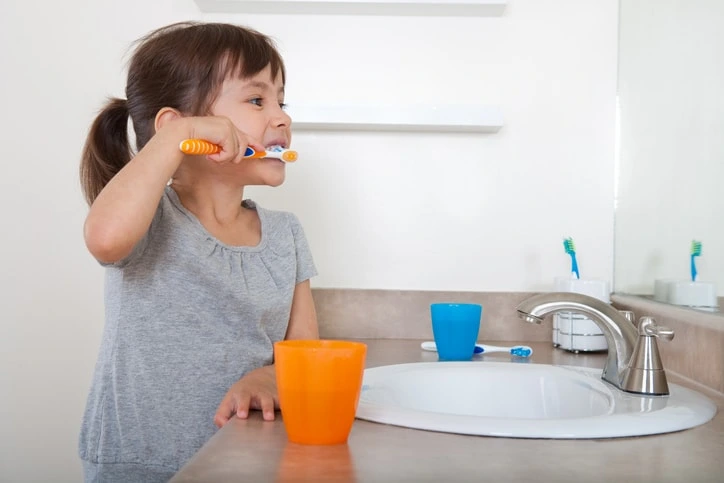The thing about parenting rules is there aren’t any. That’s what makes it so difficult.
Ewan McGregor
One of the greatest challenges for parents is the morning ordeal of dealing with sleepy and cranky kids while preparing them for the day without spoiling their moods. It could be an onerous task. However, it is better to find a solution than struggle with it because children’s morning routines have the power to change t their entire day. On weekday mornings, kids are turtles; on weekends, they get up early.

Establishing routines, such as toddler schedules, kid daily schedules, toddler bedtime routines, summer schedules, and school-age routines, is a must for parents.
These morning rituals are not only greatly advantageous for the kids but also the greatest gift to a mother’s sanity.
So, as a parent, you must have a set timetable of rituals to enjoy hassle-free mornings:
✔️Teach them to wake up themselves by setting up an alarm clock.
✔️ Teach them to dress up after getting out of bed.
✔️Ensure they do their hair after brushing their teeth.
✔️Teach the older ones to prepare breakfast independently.
✔️ Make sure they accomplish the morning chores independently, without threatening or help from you.

When given the proper resources and support (more on that in a moment), youngsters will shock and wow you with their independence, responsibility, and time management abilities. This may be taken completely seriously.
How to Start Children’s Routines?
Routine rehearsal is quite helpful. To do this, practice the routine on a Saturday or Sunday rather than on weekdays, when it is actually time to perform it. For better results, let them practice in a relaxed, enjoyable environment. Eventually, your child will learn to collaborate more readily and independently.
Morning Activities – Dos and Don’ts |
Buy an alarm clock that corresponds to your child’s capacity for determining the time. |
On Sunday, let your youngster choose their outfits for the entire week. |
Use a set of printable daily schedule cards. |
Simple examples of morning rituals for children |
Avoid gadgets in the morning |
Before requesting that a youngster sit still or concentrate, think about using some sort of vestibular or proprioceptive input. |
Give your child the brain-supporting meals they need to focus. |
1. Buy the kiddo an alarm clock that corresponds to their capacity for determining the time.

This is your best choice. When children are about 7 or 8, they have a very good sense of time. To make things easier for them, choose the stoplight alarm clock. This clock determines when it is time to get up by using the sight of a stoplight. As your child ages, switch to a more conventional alarm clock that emits noise to wake them.
- The red color says stick in bed.
- Green clears them to wake up and be seen.
2. On Sunday, let your youngster choose their outfits for the entire week.
Indulge your child in selecting the outfits for the entire week. Place them in a small organizer or drawer and label them. This can help your child get dressed independently in the morning and avoid wasting time deciding what to wear.
3. Use a set of daily schedule cards that are printable

You can design any schedule for your child with these cards because they are editable. Simply print off these routine cards, cut them out, arrange them in the order you want, and put them where your child can see them and follow the routine easily. Your youngster will benefit from knowing all the stages and their proper order if you do this.
4. Simple examples of morning rituals for children
Most children are found to function effectively with a 45-minute window of time to complete a morning ritual. Give them some more time, and they will easily complete their tasks by the deadline.
- The alarm will go off at 6:30 AM
- Eventually, the child will get out of bed by 6:40 AM and follow routine cards.
- A toy or book may distract the child for some time.
- But within 10 minutes the child can finish all the chores such as brushing teeth, doing hair, and getting dressed.
- The child can reach the kitchen by 7 AM to prepare their breakfast.
- By 7.15, they are ready to start the day.
This is a somewhat rough calculation of the kid’s time. These touch points automatically fall into place when the child follows them regularly. After a few weeks, the child automatically completes the task on schedule.

Closeup portrait of a toddler girl in the bathroom brushing her teeth with a toothbrush as her morning routine
5. Do not use gadgets in the morning.
Kids are better off when they avoid technology in the morning. Save it until they finish their chores and schoolwork in the afternoon. A child’s ability to concentrate suffers from screen time.
6. Give your child the brain-supporting meals they need to focus.
With fiber and potent nutrients, you can help your youngster succeed. Avoid processed foods and added sugar in the morning. Rather encourage them to have wholesome balanced meals that give them the quickest and most effective access to magnesium, zinc, vitamin D, vitamin B, iron, protein, and omega-3 fatty acids.
Nutritious meals can enhance children’s behavior while low-quality diets can have a significant impact on their morning routines.
7. Before requesting that a youngster sit still or concentrate, think about using some sort of vestibular or proprioceptive input.
The development of proprioception and vestibular sense during childhood is necessary for children to learn to listen, focus, and follow instructions as they get older.
| Sensory System | Description | Function |
|---|---|---|
| Proprioception | Awareness of body part positions, movements, and forces. | Helps with balance and coordination. |
| Vestibular | Detects head position and movement, aiding balance and spatial orientation. | Maintains postural control and gaze stabilization, and contributes to spatial awareness. |
When children don’t have a strong vestibular sense or a well-developed proprioception, simple things like putting on clothes, trying new foods, and doing homework become impossible challenges.
So, without proprioception and vestibular sense, children can find it difficult to concentrate in class because their bodies are too distracting.
Moonpreneur is on a mission to educate and ignite the flames of entrepreneurship through our holistically created online STEM programs, which will help kids master the futuristic sciences such as Robotics, Game Development, App Development, Advanced Math, Math-Quiz to test your kids knowledge and much more!!
Register for a free 60-minute robotics workshop today!















